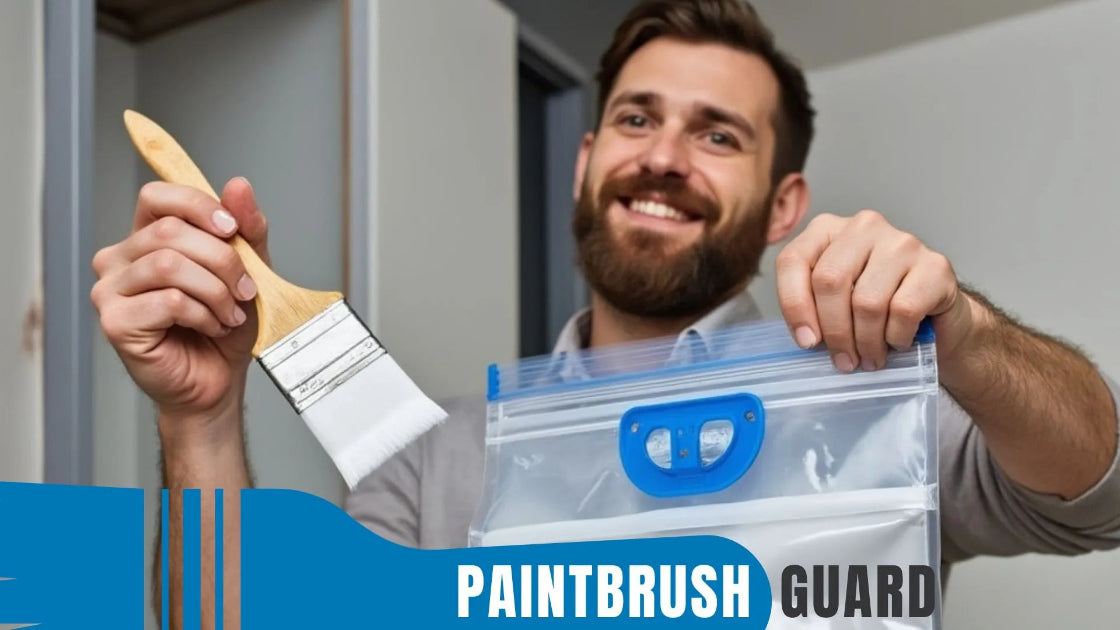
7 Expert Tips for Ceiling Painting Without a Mess
|
Time to read 5 min
|
Time to read 5 min
Painting a ceiling can instantly refresh a room, making it feel brighter and more inviting. However, the process can be intimidating due to the risk of drips, splatter, and uneven coverage.
Fortunately, with the right tips for ceiling painting, you can achieve a flawless finish without turning your home into a mess.
This article provides seven expert tips for ceiling painting tailored for homeowners eager to tackle this project with confidence. Let’s dive into these practical strategies to ensure your ceiling looks professionally painted.
Learn how to do house interior painting for ceilings. Use eco friendly paints and sustainable painting tips to brighten rooms with this step-by-step guide.
Ceilings present unique challenges compared to walls. The overhead angle makes it easy for paint to drip, and poor technique can lead to visible streaks or lap marks.
By following proven tips for ceiling painting, you can avoid these issues, save time, and enjoy a smooth, polished result.
Whether you’re updating a living space or preparing a room for a new look, these tips for ceiling painting will guide you to success.
Here are seven essential tips for ceiling painting to help you achieve a clean, professional outcome.
Preparation is the foundation of successful ceiling painting. One of the top tips for ceiling painting is to clear the room of furniture or cover it with plastic sheeting.
Lay down heavy-duty drop cloths to catch any drips or spills. Remove or tape over light fixtures and other ceiling features.
This step ensures a clutter-free workspace, letting you focus on painting without worrying about cleanup later.
With no cleanup required after a painting session, you can take a short break mid-project or wrap up your painting for the day, your brush stays ready without the need to clean.
Using the correct materials is a critical tip for ceiling painting. Opt for a ceiling-specific paint, which is thicker to minimize drips, and choose a flat or matte finish to conceal imperfections.
Pair it with a high-quality roller and a ½-inch nap roller cover for even application. This combination reduces splatter and ensures a smooth coat, making it one of the smartest tips for ceiling painting.
For clean edges, applying painter’s tape is a must-know tip for ceiling painting. Use a reliable brand like FrogTape along the wall-ceiling junction, pressing it down firmly to prevent bleed-through.
Remove the tape before the paint dries completely to avoid peeling. This technique delivers crisp lines and protects your walls, enhancing the overall finish.
To avoid lap marks and ensure a uniform look, paint in small sections—a key tip for ceiling painting. Divide the ceiling into 3x3-foot areas and use a roller in a “W” or “M” motion to spread paint evenly.
Keeping a wet edge as you move from section to section prevents visible seams, resulting in a seamless finish.
A paint tray liner is a simple yet effective tip for ceiling painting. It streamlines cleanup and keeps your workspace organized.
Pour only a small amount of paint into the tray to avoid overloading your roller, which can cause drips. After finishing, discard or clean the liner. This small step saves time and reduces mess.
Good airflow is an often-overlooked tip for ceiling painting. Open windows and use fans to circulate air, especially with low-VOC paints.
Proper ventilation speeds up drying, reduces fumes, and helps the paint cure evenly. This creates a safer, more comfortable environment and improves your final result.
Find the 7 best green paint colors for your interior walls with our top picks. Learn about paint finnish, the natural vibe and rooms to apply for perfection.
A roller extension pole is a game-changer among tips for ceiling painting. It extends your reach, eliminating the need for constant ladder adjustments, and reduces physical strain.
Choose an adjustable, sturdy pole suited to your ceiling height. This tool enhances control and precision, making painting faster and cleaner.
With these seven expert tips for ceiling painting, you can transform your ceiling without the stress of a messy cleanup.
From prepping the room to using the right tools and techniques, these tips for ceiling painting empower you to achieve a professional-quality finish.
Gather your supplies, apply these strategies, and enjoy a beautifully painted ceiling that elevates your home.
Thorough preparation, such as clearing furniture, covering surfaces with heavy-duty drop cloths, and taping over fixtures, prevents drips and spills, ensuring a clean workspace and reducing cleanup time, making it a key tip for mess-free ceiling painting.
Use ceiling-specific, thicker paint with a flat or matte finish to minimize drips and hide imperfections. Pair it with a high-quality roller and a ½-inch nap roller cover for even, splatter-free application, a critical tip for achieving a smooth ceiling finish.
Applying reliable painter’s tape, like FrogTape, along the wall-ceiling junction prevents paint bleed-through and ensures crisp lines. Removing it before the paint fully dries avoids peeling, making it an essential tip for clean ceiling painting results.
Painting in 3x3-foot sections using a “W” or “M” roller motion keeps a wet edge, preventing lap marks and ensuring a uniform finish. This technique, a top tip for ceiling painting, avoids visible seams for a seamless, professional look.
While not directly mentioned in the tips, the Paintbrush Guard supports a tidy process by keeping brushes wet during breaks, reducing the need for frequent cleaning. This minimizes paint drips and mess, aligning with efficient ceiling painting practices.
How Vacuum Increases Professional Painters Efficiency
Learn how vacuum tools like the Paintbrush Guard boost professional painters efficiency, saving time, cutting costs, and enhancing job site cleanliness.
How Do You Keep Brushes from Getting Hard?
To keep brushes from getting hard an eco-friendly choice is paintbrush vacuum storage. Learn cleaning and conditioning for paintbrushes to extend brush life.
Do Professional Painters Prep Walls?
Do professional painters prep walls? Yes, they clean, patch, sand and prime for a flawless finish. Learn why prep matters with pro house painting tips.
How to Choose the Perfect Paint Color for a Small Living Room
Discover how to pick the perfect paint color for a small living room. Learn tips on lighting, color theory and testing to create a spacious stylish space.
Does Painting Count as a Home Improvement?
Does painting count as a home improvement? Learn its value, benefits and why a impactful upgrade enhances your property's aesthetics. Start your painting today!

Learn about eco-friendly painting, tips and tutorials on house interior and exterior surfaces, so you can get started with your project without any surprices during or after your painting.

Learn how interior house paint colors influence mood with expert tips on room preference so you can pick the best colors for a harmonious home environment.
We focus on the most popular shades for each interior colors, so you don't miss no matter what color you pick.

Learn how this innovative tool allows you to store paintbrushes without the need for immediate cleaning, offering significant advantages in time savings, water conservation, reduced chemical pollution, and lower costs for supplies.
